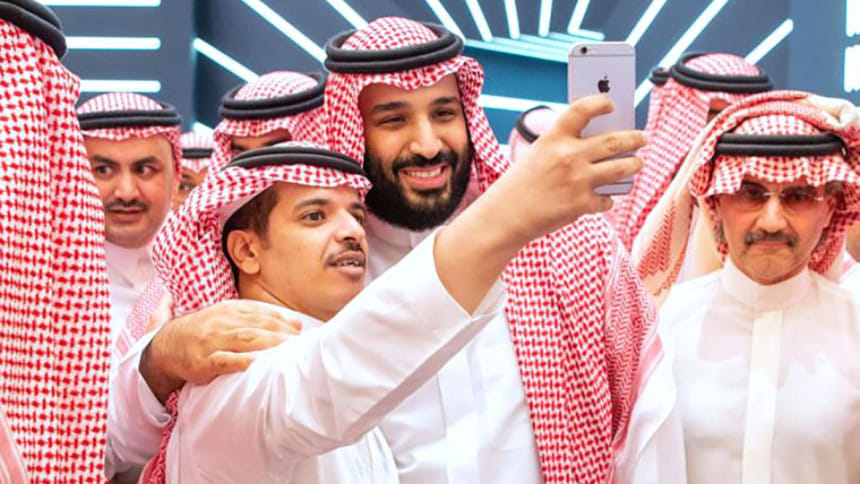From Twitter to hotels, Saudi's sprawling business interests

Saudi Arabia's global investment reach is impressive, stretching from stakes in Twitter and Uber to AccorHotels and Virgin Galactic -- but the Khashoggi affair has thrown a harsh spotlight on its economic footprint.
The following is a synopsis of the Kingdom's investment portfolio.
A 2017 UN report showed Riyadh ploughing $1.430 billion into direct foreign investment, including $380.8 billion in "developing nations."
The state's sovereign wealth Public Investment Fund (PIF) nest egg accounts for the biggest share of the total, $250 billion as of September, both at home and abroad. The government wants to lift that to $400 billion by 2020.
Around half of PIF's holdings concern domestic activities and the fund's chairman, Crown Prince Mohammed bin Salman, is above all pushing investment in new technologies. The International Monetary Fund estimates the PIF has invested $95 billion abroad since 2016, including in relatively high-risk high-tech ventures.
The PIF recently took a share in the capital of several leading US firms, including a $3.5 billion stake in global ridesharing giant Uber, as well as $400 million in virtual reality start-up Magic Leap.
The fund contributes to the financing of innovative projects such as the Lucid Motors self-driving car or Virgin Galactic space tourism missions, with a cool billlion going to both.
The sovereign fund has also joined together with Japanese conglomerate Softbank and a clutch of other investors, including Apple and Foxconn, to create the ambitious high tech Vision Fund, the Saudi contribution $45 billion to a $100 billion scheme.
Following the crown prince's visit to the United States last spring the PIF committed up to $20 billion to a massive infrastructure projects fund in the United States with private equity firm Blackstone coming up with a similar sum.
In Russia, PIF signed an accord with the Russian Direct Investment Fund (RDIF) for a joint $10 billlion investment fund in Russia. last year, PIF said it was weighing up potential investment in Russia in trade, real estate, renewable energy and logistics.
Furthermore, PIF has a $750 million stake in German maritime transport specialist firm Hapag-Lloyd. It also participates in a consortium which holds a 65 percent share in AccorInvest, the parent company of French hotel chain AccorHotels, and has a 20 percent stake in iron and steel giant ArcelorMittal. Last September the Saudi fund Salic, dedicated to agriculture, bought out Ukrainian agro group Mriya.
Prince Al-Waleed bin Talal, the CEO of the Kingdom Holding Company (KHC) and who Time magazine has dubbed the "Arabian Warren Buffett," is also a key figure on the Saudi international investment scene. Forbes magazine estimates his personal fortune at $27 billion.
Since 1991, he has invested $590 million in US bank Citicorp to obtain a 14.9 percent stake, according to the New York Times.
Through his position with (KHC), the prince has made huge investment in Saudi real estate as well as abroad in fields from digital infrastructure, hotelry and entertainment.
Since 2015, KHC and the Saudi public investment organisation have been investing in SMEs and renewable energy via the Al Waleed-financed Franco-Saudi Five Capital fund, the prince putting in $2 billion.
He also has a 5.67 percent stake in the AccorHotels group and is owner of several hotels, not least The Savoy in London and several more managed by the Four Seasons Hotels group.
He maintains 4.61 percent shareholding in Twitter, acquired in 2015, and has invested $100 million in Lyft, Uber's main rival, while injecting a further 25 millions into Snap, the parent of Snapchat.
Another Saudi investment saw food company Al-Munajem take a 25-percent stake in French poultry group Doux in 203.

 For all latest news, follow The Daily Star's Google News channel.
For all latest news, follow The Daily Star's Google News channel. 



Comments